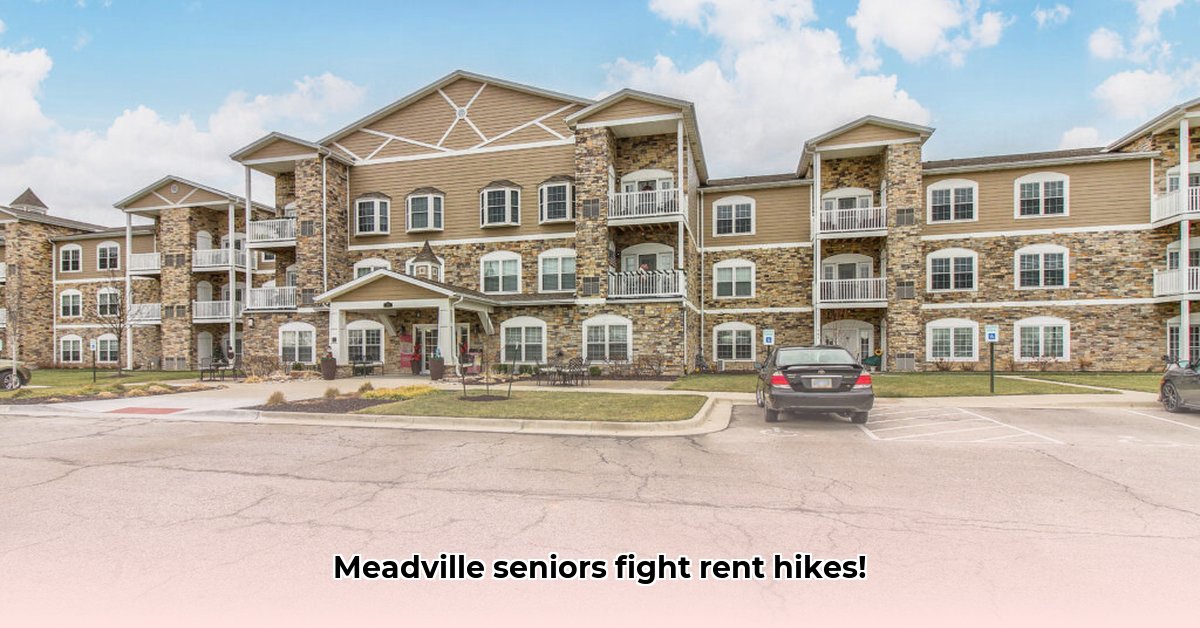
Meadville Seniors Confront Massive Rent Increases at Connect 55
Renters at the Connect 55 senior housing complex in Meadville, Pennsylvania, are embroiled in a bitter dispute with developer Calamar over substantial rent increases, some reaching as high as 40%. These increases, impacting residents largely on fixed incomes, have sparked outrage and prompted legal action. The conflict highlights a broader issue: the vulnerability of senior citizens in the face of rising housing costs and potentially exploitative practices.
Many residents, lured by promises of a comfortable retirement community and specific amenities, now find themselves struggling to afford the drastically increased rents. The situation has led to protests and a formal complaint filed with the Pennsylvania Attorney General's office, signifying the depth of the residents’ frustration and their determination to fight for fair treatment.
Calamar defends the rent increases, citing rising market rates and the fact that initial rents were discounted due to the building's unfinished state. They emphasize planned upgrades and their commitment to providing an "exceptional" living environment. However, residents contest that the increases are disproportionate to initial savings and unacceptable given the unresolved issues with building amenities. "We were promised one thing, and we're getting something entirely different," said one resident who wished to remain anonymous due to fear of reprisal.
The Pennsylvania Attorney General's investigation is now underway. This investigation will determine whether Calamar's actions comply with consumer protection laws. The outcome will significantly impact not only Connect 55 residents but also potentially set a precedent for future senior housing developments. Isn't it troubling that such significant rent increases are impacting a vulnerable senior population?
This isn’t merely a landlord-tenant dispute; it raises serious ethical questions. Are developers prioritizing profits over the well-being of their tenants, particularly those with limited financial resources? The situation underscores the potential for exploitation within senior housing and the urgent need for stronger tenant protections. The involvement of college students in some protests, highlighted by Calamar, has been countered by residents who emphasize the protests are predominantly led by senior citizens fighting for their financial security. This difference in framing underscores the deep divide and mistrust between the parties.
The conflict has prompted more than just resident protests. The Pennsylvania Attorney General's involvement adds significant weight to the situation. Dr. Eleanor Vance, Professor of Gerontology at Penn State University, noted, "This case exemplifies a growing trend of vulnerable seniors facing predatory pricing in the housing market. Stronger regulations are desperately needed."
Key Takeaways:
- Significant rent increases at Connect 55 have left many seniors facing financial hardship.
- The Pennsylvania Attorney General is investigating alleged violations of consumer protection laws.
- The situation highlights the need for stronger regulations and protections for senior citizens in the housing market.
What's Next?
The path forward involves multiple steps and stakeholders:
- Legal Action: Connect 55 residents are actively pursuing legal remedies, including the ongoing Attorney General investigation. (Efficacy: Outcome uncertain, but legal action provides a formal avenue for redress).
- Negotiation: Calamar needs to engage in meaningful dialogue with residents, potentially offering compromises on rent and outlining a timeline for completing promised amenities. (Efficacy: Successful negotiation could alleviate tensions and prevent further legal battles.).
- Policy Reform: The situation underscores the need for stronger tenant protections and regulations within the senior housing industry. (Efficacy: Successful policy changes could prevent similar situations in the future.).
The Connect 55 situation serves as a stark reminder of the vulnerabilities of senior citizens in the housing market. The outcome of the Attorney General's investigation and the ongoing resident activism will shape future discussions regarding fair housing practices and corporate responsibility. The need to protect our most vulnerable citizens is paramount. What steps can be taken to ensure this doesn't happen again?